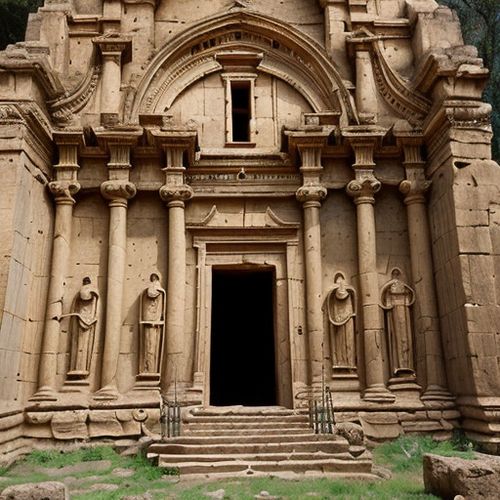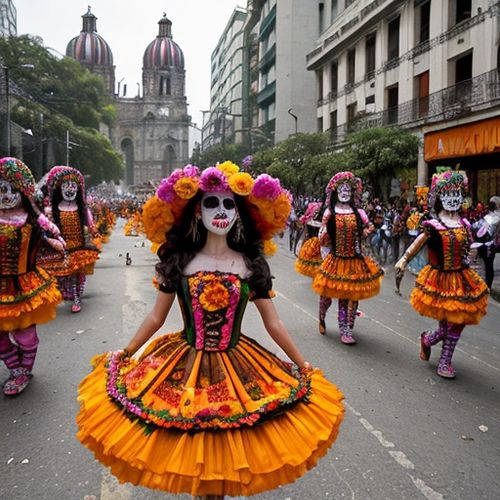In the realm of modern travel, where destinations are often chosen with the precision of a seasoned explorer and planned with the meticulousness of a seasoned strategist, a peculiar phenomenon has emerged—one that threatens to disrupt the carefully laid plans of countless travelers. It is a tale of fear, fueled by the whispers of the mystical and the echoes of the unknown. A Japanese comic book, a psychic's prediction, and a feng shui master's warning have converged to create a perfect storm of anxiety, casting a shadow over Japan's vibrant tourism industry.
Japan, a land renowned for its resilience and technological prowess, has long been a beacon for travelers from around the globe. Its rich cultural heritage, breathtaking landscapes, and cutting-edge urban marvels draw millions each year. Yet, in recent times, a wave of fear has surged through the hearts of many would-be visitors, particularly those from East Asia, causing them to cancel or postpone their journeys. This fear, however, is not rooted in reality but in the shadows cast by superstition and misinformation.
The epicenter of this anxiety lies in the pages of a comic book, "The Future I Saw," penned by manga artist Ryo Tatsuki. First published in 1999, this work of fiction warned of a major disaster in March 2011—a date that eerily coincided with the catastrophic earthquake that struck Japan's northern Tohoku region. The book's eerie accuracy, or what some might call a remarkable coincidence, catapulted Tatsuki to fame and earned her a devoted following. Her "complete version," released in 2021, claimed that the next big earthquake would strike in July of this year. This prediction, coupled with similar warnings from psychics in Japan and Hong Kong, has triggered a wave of unfounded panic online, leading to a flurry of travel plan cancellations.
The impact on Japan's tourism industry has been palpable. Travel agencies, such as Hong Kong-based WWPKG, have reported a significant drop in bookings. According to CN Yuen, the managing director of WWPKG, bookings to Japan dropped by half during the Easter holiday and are expected to decline further in the coming months. The fear has spread like wildfire, particularly among travelers from mainland China and Hong Kong, who are Japan's second- and fourth-largest sources of tourists, respectively. However, the anxiety has not been confined to these regions; it has also reached other markets, such as Thailand and Vietnam, where social media platforms are abuzz with warnings urging people to think twice before traveling to Japan.
Japan, lying on the Ring of Fire, an area of intense seismic and volcanic activity, is no stranger to severe earthquakes. The fear of a "big one" has been building since the Japanese government warned in January that there was an 80% chance of a severe earthquake hitting the country's southern Nankai Trough within 30 years. While some seismologists have questioned the accuracy of such predictions, the fear has taken hold in the minds of many.
Tatsuki's work has a significant following in East Asia, where her fans believe she can accurately foresee future events through her dreams. In her manga, she draws a cartoon version of herself, sharing visions from her slumbers with other characters. Some of these dreams have striking similarities to real-life events, leading to her fame. Her 2011 quake prediction, whether a genuine foresight or a mere coincidence, made her a household name not only in Japan but also in other parts of Asia, such as Thailand and China. The comic book has sold 900,000 copies, according to its publisher, and has been published in Chinese. Her fans claim she also predicted the deaths of Princess Diana and singer Freddie Mercury, as well as the Covid-19 pandemic. However, critics argue that her visions are too vague to be taken seriously.
In the latest edition, "The Future I Saw (Complete Version)," Tatsuki warns of a crack opening up under the seabed between Japan and the Philippines on July 5 this year, sending ashore waves three times as tall as those from the Tohoku earthquake. When asked about the canceled trips resulting from readers' interpretations of her book, Tatsuki, as reported by the Japanese newspaper Mainichi Shimbun, viewed the interest in her work positively, urging people not to be "overly swayed" by her dreams and to "act appropriately based on expert opinions."
Tatsuki is not the only one spreading such predictions. Chinese media has reported on a self-proclaimed Japanese psychic who suggested a massive earthquake would strike the densely populated Tokyo Bay Area on April 26. Though the date passed without incident, the prediction sparked immense interest on Chinese social media. Qi Xian Yu, a popular feng shui master and Hong Kong TV personality known as Master Seven, also urged people to stay away from Japan, starting in April.
Japan's Cabinet Office has taken steps to address the issue, explaining on social media platforms that modern technology has yet to achieve the ability to accurately predict earthquakes. Yoshihiro Murai, governor of Miyagi prefecture, which was severely affected by the 2011 quake, has also spoken out against the impact of superstitious beliefs on Japan's tourism. "I believe it is a serious issue when the spread of highly unscientific rumors on social media affects tourism," he said during a press conference.
Despite the noise on social media, the fearmongering does not seem to have significantly deterred all travelers. Japan remains a wildly popular destination, with the Japan National Tourism Organization reporting a record-breaking 10.5 million visitors in the first three months of 2025. Mainland Chinese travelers visited Japan in large numbers, with 2.36 million visiting in the first quarter of this year, up 78% from last year. Similarly, 647,600 Hong Kong residents visited Japan during the same period, marking a 3.9% year-on-year growth. In March alone, Japan welcomed 343,000 Americans, 68,000 Canadians, and 85,000 Australians.
However, the fear has certainly affected some individuals. Samantha Tang, a 34-year-old yoga teacher from Hong Kong, originally planned to visit Wakayama, a beach destination about 50 miles south of Osaka, in August but has since canceled her trip. "Everyone says so much about an earthquake coming," she said, expressing her anxiety. Another Hong Kong traveler, Oscar Chu, 36, who usually visits Japan multiple times a year, has also changed his plans. "It's best to avoid it. It's going to be really troublesome if an earthquake indeed happens," he explained, adding that he was more concerned about the ensuing travel chaos and flight disruptions than the earthquake itself.
On the other hand, many tourists remain undeterred by the predictions. Vic Shing from Hong Kong is one such traveler. Although he has heard about "the prophecy," he remains committed to his Japan vacation this year. "Earthquake predictions have never been accurate," he said. "Even if one did hit, Japan has encountered many massive earthquakes before. It shouldn't be too bad when it comes to disaster management," he added.
In this age of information, where whispers of doom can travel faster than the speed of light, it is crucial to separate fact from fiction. While the allure of a comic book or the mystique of a psychic's prediction may capture the imagination, it is the voice of reason and the guidance of experts that should shape our decisions. Japan, with its proven track record of resilience and disaster management, stands as a testament to the strength of preparedness and the power of community. For those who choose to visit, they will find not a land of impending doom but a vibrant, welcoming destination that continues to inspire and captivate.

By Jessica Lee/May 20, 2025

By Victoria Gonzalez/May 20, 2025

By Christopher Harris/May 20, 2025

By Sophia Lewis/May 20, 2025

By Natalie Campbell/May 20, 2025

By Christopher Harris/May 20, 2025

By George Bailey/May 20, 2025

By Sarah Davis/May 20, 2025

By Daniel Scott/May 20, 2025

By Benjamin Evans/Apr 11, 2025

By Emily Johnson/Apr 11, 2025

By Sophia Lewis/Apr 11, 2025

By Emma Thompson/Apr 11, 2025

By Noah Bell/Apr 11, 2025

By James Moore/Apr 11, 2025

By Christopher Harris/Apr 11, 2025

By Christopher Harris/Apr 11, 2025

By Daniel Scott/Apr 11, 2025

By Grace Cox/Apr 11, 2025